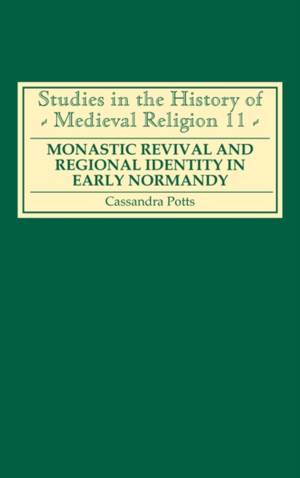
- Afhalen na 1 uur in een winkel met voorraad
- Gratis thuislevering in België vanaf € 30
- Ruim aanbod met 7 miljoen producten
- Afhalen na 1 uur in een winkel met voorraad
- Gratis thuislevering in België vanaf € 30
- Ruim aanbod met 7 miljoen producten
Zoeken
Omschrijving
The rulers of Normany performed a complex juggling act: starting from a pagan Norse military power base round Rouen, they built an accepted political entity within the boundaries of the Christian state their ancestors had invaded. Successfully reconciling Viking, Frankish and Breton elements within their realm, the Norman rulers created `one people out of the various races', in the words of one eleventh-century writer. As part of that effort, they revived and reformed the monasteries in the region, enlisting the aid of prestigious abbots from reform centres beyond Normandy. By the early eleventh century, there was a consciousness within the region that a new people as well as a new principality had taken shape over the course of the past century. In this process of state-building and ethnogenesis, the revival and reform of monasticism played a crucial role. This book evaluates the relationship between Norman lords and monastic communities and demonstrates how that relationship contributed to the political and social evolution of the duchy. Through this regional focus, 'Monastic Revival and Regional Identity in Early Normandy' adds to an understanding of the role monasticism played in tenth and eleventh-century European society, and, more broadly, in the formation of political and cultural entities in medieval Europe. The conclusions presented in this study are based on an analysis of published sources as well as over two hundred unpublished monastic charters located in Norman archives and libraries.Dr CASSANDRA POTTS teaches at Middlebury College.
Specificaties
Betrokkenen
- Auteur(s):
- Uitgeverij:
Inhoud
- Aantal bladzijden:
- 186
- Taal:
- Engels
- Reeks:
- Reeksnummer:
- nr. 11
Eigenschappen
- Productcode (EAN):
- 9780851157023
- Verschijningsdatum:
- 2/10/1997
- Uitvoering:
- Hardcover
- Formaat:
- Genaaid
- Afmetingen:
- 161 mm x 239 mm
- Gewicht:
- 467 g

Alleen bij Standaard Boekhandel
+ 354 punten op je klantenkaart van Standaard Boekhandel
Beoordelingen
We publiceren alleen reviews die voldoen aan de voorwaarden voor reviews. Bekijk onze voorwaarden voor reviews.








